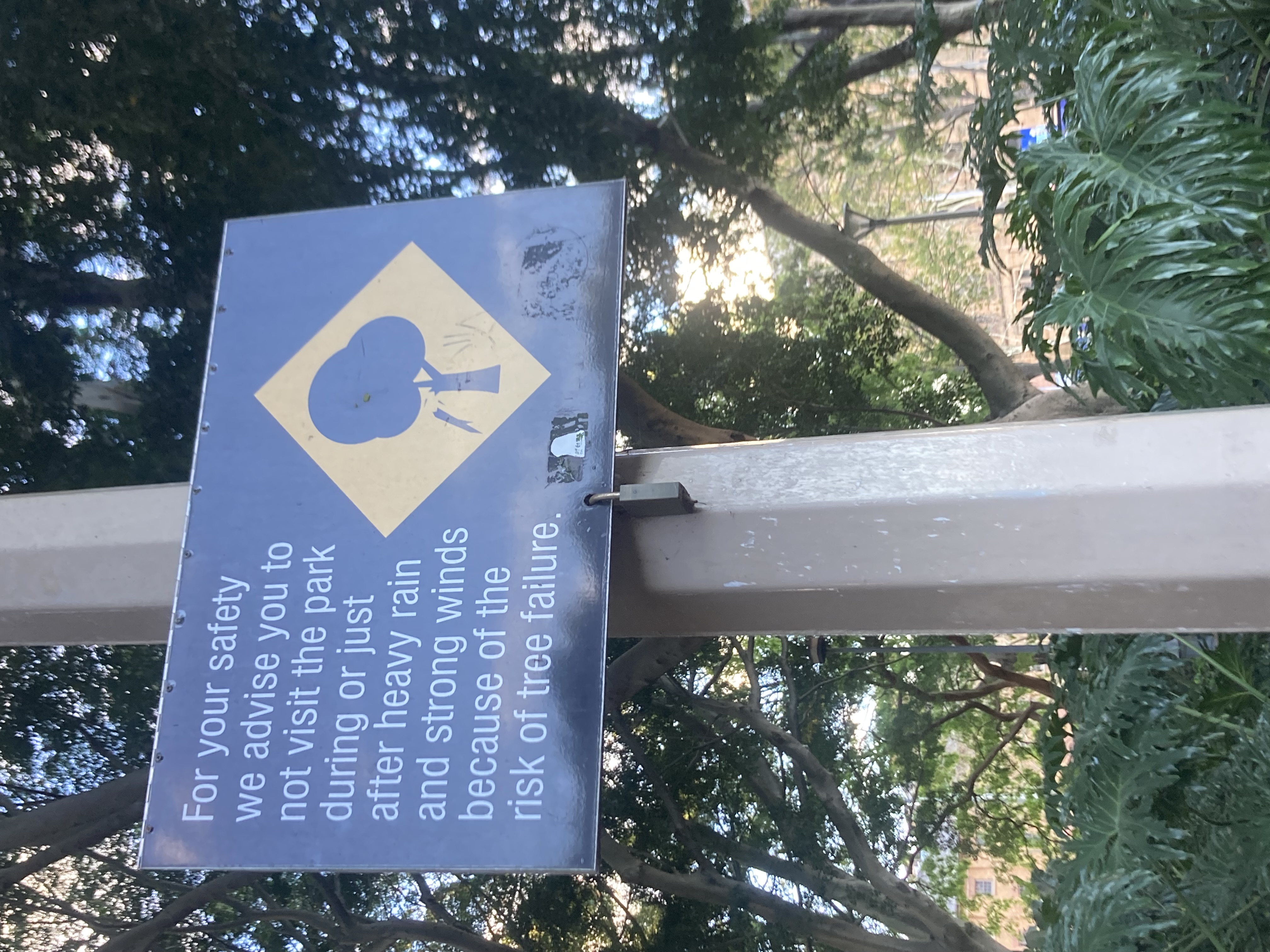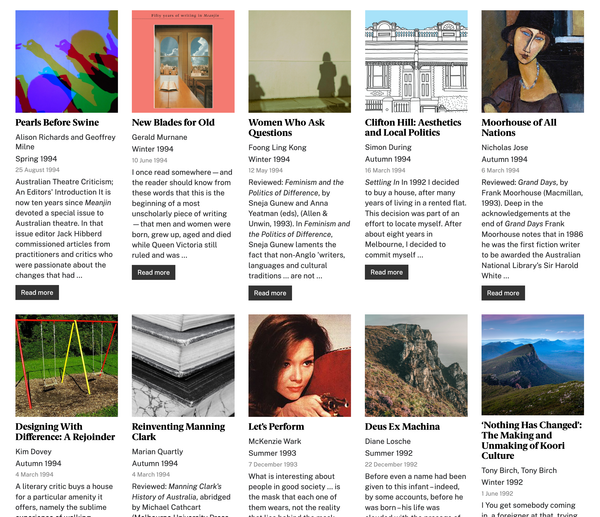Tree Failure
School's back. Autoethnography? It's in the dictionary.
My kids returned to school last week and here I am, browsing my drafts folder, reading fragments of newsletters that I might have finished and sent in the final month of the endless north American summer, but didn’t. After three months of school holidays, words like deadline and routine have pixelated. It rained – once? Twice? Not enough to rinse the smoke out of the air. The phenomena I have learned to call fall storms are still a few weeks off and I managed to get sunburnt the other day. But my kids are back at school and that is enough for me to settle into decorative gourd season here in Vancouver.
Many people sent me the response published by The Conversation to the NYT’s Best 100 Books of the 21st Century list, which I wrote about last newsletter. I will probably never stop grumbling about these anxious lists but I think the moment might have passed on this one. No bother, the Best Books of 2024 lists are now being readied for publication in December, and so too the books of the summer, the books of the holiday season, the books to look out for in 2025 and so on.
I will say that the books on the Convo’s list are more interesting to me than those generated by the Readings survey, and so is the methodology. The framing avoids the cultural cringe that typified so many early responses to the NYT palaver and it is not an obvious sales exercise – it’s the exception to the rule that lists of Books You Must Read be riddled with affiliate links. Friends and colleagues whose literary judgment I respect contributed to the Convo piece, and I was of course curious about their recommendations. The eternal practice of recommending books by one’s friends and colleagues seems to have been diligently observed. Plus ça change! I take my hat off to Tanya Dalziell for nominating a book that has brought great pleasure to my household over the years, The 13-Storey Treehouse by Andy Griffiths, a gloriously silly book full of farts and explosions that very nicely perturbs the notions of literary merit upon which such lists rely. More seriously, it is a wonder to behold three books by the great Alexis Wright on this list, and also to reflect on how Wright’s difficult, dense novels demand to be read on their own original and perplexing terms, and not against a colonial system of value, which a best Australian books of the century list most certainly is, whatever the methodology.
Also in my drafts folder, Raygun, aka Rachel Gunn. Remember Raygun? Of course I experienced a bolt of recognition and solidarity upon learning that someone with academic training came dead last in a sporting event. As has often been said to me over the years, someone has to. I haven’t watched a full-length video of Raygun’s performance and so I have nothing useful to say about it, nor about Australian breaking or breaking as an Olympic sport. (My sense is that most commentators don’t either.)
It’s been hard, however, to ignore the way Raygun’s profession – academic in cultural studies – has been seized upon by commentators keen to double down on humiliating her for having the temerity to compete at all. I can’t claim to have kept track of whether underperforming Australian athletes who happen to be physiotherapists or nutritionists have had their professional lives scrutinised and mocked. I am game, however, to proffer the measured speculation that this hasn’t happened. Has it?
Cultural studies! I’ve now lived through decades of people dumping on cultural studies in Australia, usually those who worry that they are somehow being disenfranchised by a discipline that is interested in contemporary life and has an explicitly political dimension. Worry about cultural studies - or queer studies, or women’s studies, or Indigenous studies, or THEORY, and ja, they’re all related – is a long-standing reflex of Australian anti-intellectualism. Souls on the left and the right are united in the project of declaring what is fit for study in the humanities, and what is not. If you’re scared of cultural Marxism or cultural relativism, it follows that you hate cultural studies. And if you’re worried that cultural theory is a bourgeois distraction from the real struggles of the labour movement, you probably hate cultural studies. And if you’re prone to making noises about what constitutes real research and appropriate objects of study, you definitely hate cultural studies. And whoa, did Raygun’s Olympics outing give the cultural studies haters an opportunity to get out and party.
The idea that humanities faculties are dominated by pseuds, do-gooders and flakes has long been parlayed obviously by the usual suspects on the right, but also by the Labor Right and hacks who feel terribly territorial about contemporary art, music and literature. These are the people who got worked up about post-structuralism and semiotics (I have a major in semiotics, AMA) when I was an undergraduate, who loved to spray indignant about journal articles on colonialism or lesbianism in Jane Austen (imagine), who still have conniptions when the words like ideology or racism or decolonialism are spoken around children, who see Alan Sokal as a hero and who remain highly skeptical about teaching creative writing in universities. Most cultural studies haters will indignantly and immediately repudiate the insult of anti-intellectualism, and maintain that they are merely defenders of intellectual standards, and sometimes of free speech.
To my delight, Parnell Palme McGuinness actually invoked Sokal in her piece on Raygun and why we postmodernists were wrong all along. She went there! She writes, ‘It wouldn't be the first time an academic has made an important point by creating something objectively terrible to show that people will defend all kinds of bunk.’ The piece is paywalled for public safety, so thank Factiva for the quotes:
Dr Rachael "Raygun" Gunn is first and foremost a cultural studies academic. Her articles and papers, like those of many academics, are filled with the kind of passages Sokal mocked. A standout paragraph from her PhD declares: "I use analytic autoethnography and interviews with scene members in collaboration with theoretical frameworks offered by Deleuze and Guttari, Butler, Bourdieu and other feminist and post-structuralist philosophers, to critically examine how the capacities of bodies are constituted and shaped in Sydney's breakdancing scene, and to also locate the potentiality for moments of transgression. In other words, I conceptualise the breaking body as not a 'body' constituted through regulations and assumptions, but as an assemblage open to new rhizomatic connections."
This sounds to me like a pretty standard PhD paragraph – but to McGuinness, it’s dangerous gibberish. Pedant moment 1: Guattari, not Guttari. Whose error? Gunn’s? A mistranscription by McGuinness that slipped past the copyeditors (lol) at the SMH? We find the answer via pedant moment 2: The quoted material is not from Gunn’s PhD, it’s from the abstract, in which Félix Guattari’s name is correctly spelled. Anyway, what’s important here is that McGuinness is convinced that Gunn’s performance at the Olympics is a function of her being a cultural studies academic. Following McGuinness, Raygun was able to get one over the university who employed her and the Olympics selection committee because, thanks to the postmodernists and the crisis of relativism, none of us can tell good from bad anymore:
The only thing I'm not sure about is whether we've hoaxed ourselves. Or whether the butt of the joke will end up being her university, the discipline of cultural studies, or academia generally. Or perhaps the Olympic Games, the public who funded her trip, or the many, many enthusiasts who tied themselves in knots considerably more sophisticated than Raygun's on-stage contortions. In the end, I'm not sure it matters on whom the joke was; it was so perfectly delivered that all the above stand hoaxed, even if that was never Raygun's intention.
I feel like I’ve been hoaxed after reading this column twice. This is very much the commentary I would expect from McGuinness the contrarian libertarian, who is nothing if not consistent in her loathings.
Martin McKenzie-Murray’s belch of a piece on Raygun in the Saturday Paper dialled into the same tradition as McGuinness did. After noting that she’d been the subject of ‘global ridicule’ for her performance, he marches his reader into a snide discussion of Gunn’s academic work.
… then I read her academic papers, the ones leaden with phrases like “embodied knowledge” and “analytic autoethnography” and which bizarrely assert that “sport in Australia is largely a middle-class White affair, with institutions structured in a way that privileges and excludes particular people and backgrounds”, which will come as a surprise to any NRL fan.
I also read quotes of breathless grandiosity, like “Breaking provides an opportunity to explore the ‘faster, higher, stronger’ ethos of the Olympics in new ways. It shows us that we truly don’t know every point on which the body can spin or launch its weight, the different shapes it can make, or all the ways it can move”, which offered an interesting counterpoint to footage of her mopping the stage with her cap.
Ah yes, taking sentences and phrases from academic journal articles out of context, a good trick that, never fails. At least he appears to have gone further than pulling from the abstract to Gunn’s PhD, but it’s a low bar. It’s all framed with the kind of self-regarding contempt you associate with a Devine or an Albrechtsen, or indeed a McGuinness.
I haven’t read Gunn’s academic papers, and won’t offer any half-arsed defence of her academic record, save to note that her list of scholarly publications is long. It’s plausible to me that her work might be very good or that it might not be. I gather there’s a conversation underway about race and cultural appropriation in relation to Raygun the breaker and Rachel Gunn the scholar of breaking; this seems to be to be appropriate, unsurprising, and useful. As in any discipline, not every paper published in a peer-reviewed journal is going to be great, especially to a reader outside the discipline, and cultural studies, in addressing itself to topics that non-academics like to opine about, has long been vulnerable to misrepresentation via very selective quotation by hostile readers. I am certain that if Raygun’s dayjob had been physiotherapist or nutritionist or human relations manager or dance teacher or nurse, it would not have been raked over like this, no matter what happened out there on the breaking mat.
Over the years I have read a lot of columns like McGuinness and McKenzie-Murray’s, in which the author loses their mind over writing practices and ideas that are ubiquitous in humanities academia. Autoethnography? What a word! Embodied knowledge? What a concept! Deleuze? Spare me! We don’t need French philosophy to help us understand Australian sport. (Sotto voce, wankers.) Who would possibly think to talk about sport in this way? On and on it goes. Is the wench not aware of the notoriously equitable institution that is the NRL? I clearly have not been away from Australia for long enough, because there’s something about a guy flinging down the ‘what about the NRL, lady’ card (especially in the Saturday Paper, FFS), when a woman dares to talk about sport that makes me see red. It is actually pretty funny to read a commentator react so violently to the suggestion that exclusion might be a feature rather than a bug of Australian sporting life, but heigh-ho. Strange, disheartening, to see a newspaper that calls itself progressive churning out this cringey nonsense. (For those interested in such things, the McGuinness piece was published the day after McKenzie-Murray’s.)
There’s even a jokey call for a Royal Commission into cultural studies at the end of McKenzie-Murray’s piece. Ha! Hahahaha! Raygun is ridiculed for her performance at the Olympics, and Rachel Gunn is pilloried for being a cultural studies scholar – but that’s not enough! The people who gave her a job need to answer for her research. The whole bloody discipline needs to answer for her. Purge the postmodernists! I get it, I get it, it’s a joke. Scabrous commentary, amirite? Clickbait, more like it, and a sign of how precarious the very idea of public intellectualism is in Australia.
McKenzie-Murray and McGuinness have a lot of fun putting the boot into Raygun and cultural studies, turning her into a scapegoat for all the excesses of post-modernism and mis-steps of cultural studies. This humiliation hardly seems to fit the crime. In fact, I’m no longer sure what Raygun’s crime is - was it being a breaker? Coming last? Was it that she invited ridicule while wearing the sacred green and gold? Or is it that she is an athlete who is also a scholar, a person has the misfortune to have been in public as both the wrong kind of athlete (weird sport, not a winner) and the wrong kind of scholar? Funnily enough, there is a whole academic discipline that would help a curious person untangle that knot…
Finally, also in my drafts folder was the picture below, which was taken in Hyde Park, near the Archibald Fountain.

The sign reads:
For your safety, we advise you to not visit the park during or just after heavy rain and strong winds because of the risk of tree failure.
Very early one delirious jetlagged morning I became convinced that this sign was the key to a unifying cultural theory. The notes that follow are incoherent – ‘TREE VITALITY not TREE FAILURE’, ‘Whose safety? Who advises?’, ‘Eco-humanities???’ – that sort of thing. I’ve moved on.
All going well, I’ll be sending this newsletter more regularly in the coming months.
Thanks for reading Infra Dig! Subscribe for free to receive new posts and support my work.


